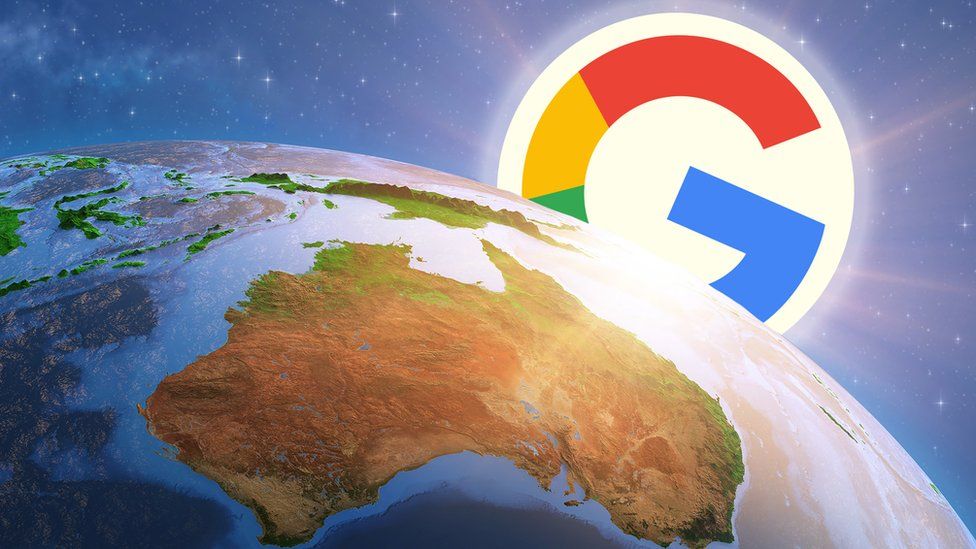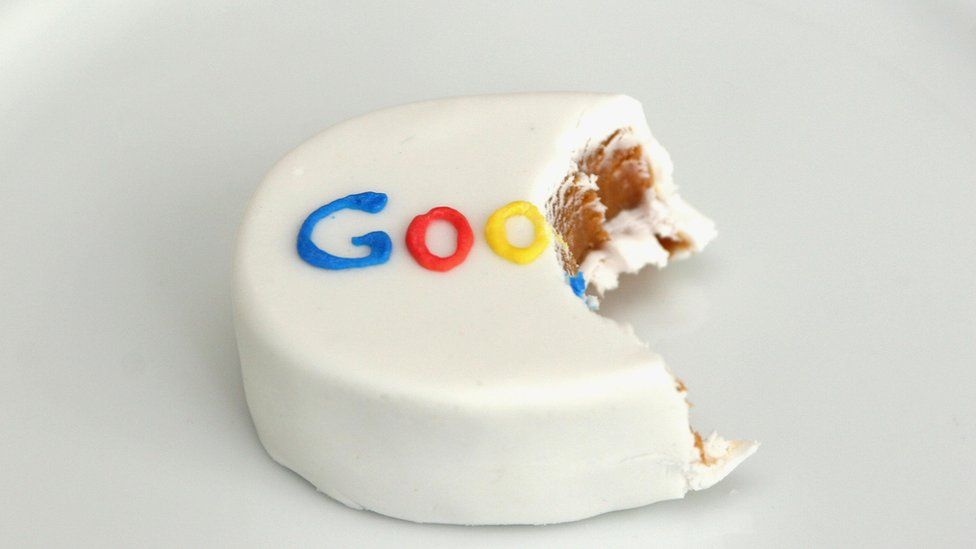Could Google really leave Australia?

Google has threatened to pull out of the Australian market if a new law governing its relationship with news publishers goes ahead.
So what’s the row all about?
Why would Google pull out of Australia?
The government is introducing a law to address a long-bubbling row over whether tech giants should pay for news that appears in search or is shared on their platforms.
The proposed law would mandate that Google has commercial agreements with every news organisation – or enter forced arbitration, something Google says is “unworkable”.
“If this version of the code were to become law, it would give us no real choice but to stop making Google Search available in Australia,” the regional director, Mel Silva, said.
Australian Prime Minister Scott Morrison told Google: “We don’t respond to threats”.
What alternatives are there?
Google has about 90-95% of the search engine market share in Australia – similar to the rest of the world.
But other options for search exist – mainly Microsoft’s Bing, and Yahoo, but also privacy-focused ones like DuckDuckGo.
But while site analysis firm Alexa ranks Google as the most-visited site on the internet, Yahoo lies at 11th, and Bing at a distant 33rd.
Would Google disappearing really affect people?
In 2018 a writer for Wired magazine spent three months using Bing exclusively – and concluded that it worked fine almost all the time.
But in very specific cases – such as finding old articles – he struggled, because the techniques he learned for search using Google didn’t deliver the expected results.
And Google is not just a search engine – its search technology also powers services such as Gmail, Google Maps and YouTube, among others.
It’s unclear at this stage if Google’s threat – if carried out – would affect those other apps.
Alternatives to these do exist, but are little-used and the Google apps are seen as essential by many consumers.
When Huawei phones lost access to Google services amid a row with US regulators, they found it much more difficult to sell phones in the West.
Could this set a global precedent?
Australian Senator Rex Patrick told Google: “It’s going to go worldwide. Are you going to pull out of every market, are you?”
But Google and other companies affected – like Facebook – are based in the US.
And the US government – at least the previous administration – has urged Australia not to “rush” the new law, warning that it is “extraordinary” and may have “long-lasting negative consequences”.
While there is no exact match for this scenario, Google has left a country before due to local laws.
Google has been largely unavailable in mainland China since a row in 2010 over alleged Chinese hacking, during which it stopped censoring search results for Chinese users.
There’s also a different – but similar – row happening in Europe.

Getty Images
A controversial new EU rule on copyright says that search engines and news aggregators should pay news sites for links.
In France, publishers this week agreed a deal with Google on how that should work.
But only a handful of such deals have been signed, with notable French newspapers – making it a very different thing than the wide-ranging, much stricter Australian plans.
How much money is Australia worth to Google?
Compared to China, Australia is a much smaller potential market.
Google Australia made A$4.8bn ($3.7bn; £2.7bn) in revenue in 2019. Advertising revenue made up most of that, at A$4.3bn. But factor in all the expenses, and Google Australia made A$134m in profit for the year.
To put that in context, Google’s parent Alphabet has an estimated US$100bn or more of cash on hand to cover any revenue gaps.
But it’s about more than money.
The wider concern is whether Google wants a modern Western democracy to showcase how using its competitors can be perfectly viable.
Can’t Australians just use US Google instead?
It’s possible that Google could redirect Australian Google users to the US (or another) country’s version of Google. That would likely strip out localised search results, but keep the service accessible.
But it may also be that Google would block Australian users based on their geographic location as determined by an IP (internet) address.
One simple way around that is using a Virtual Private Network, or VPN, which makes your computer look like it’s somewhere else – a trick often used by the tech-savvy to access streaming services in other countries.
But it is slower, and reputable providers require a subscription – a hassle many people would rather avoid for simple search results.
What does Australia want Google to pay?
Exactly how much money is at issue is undecided.
The proposed law involves bargaining and arbitration, leaving the matter open – if Google can’t reach agreement with a news outlet, a judge would decide what is “fair”.
But the government has said it wants “fair” payments to news organisations, which have seen print advertising revenue fall by three-quarters over the past 15 years.
In contrast, digital advertising on major platforms like Google and Facebook has risen dramatically over the same time.
Would it really help publishers?
Australia has a vibrant news industry – media titan Rupert Murdoch, who owns News Corp, was born there.
His outlets would benefit, as would public broadcasters such as ABC News in Australia.
ABC’s funding has been cut by hundreds of millions of dollars since 2014, resulting in cuts to services.
Local newspapers have also been hurt in the demise of advertising – with more than 125 News Corp-owned regional newspapers going online-only earlier this year, resulting in hundreds of job losses.
Published at Fri, 22 Jan 2021 15:04:12 +0000




Comments
Loading…